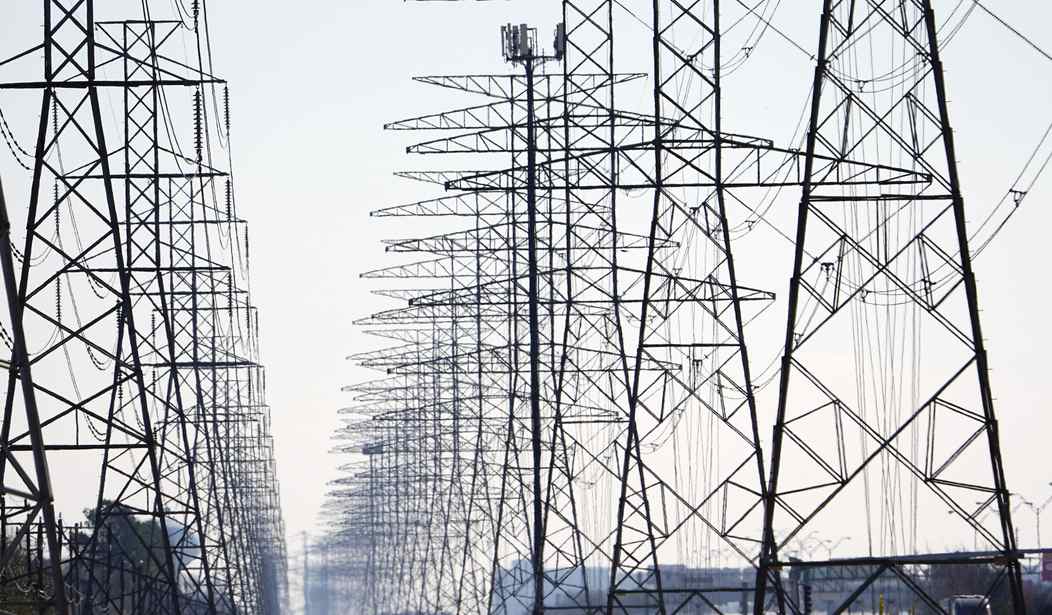Editor's Note: This column was written by Frank Lasee.
Imagine one of your kids freezing to death in your home. Eleven-year-old Cristian Pineda's mother found her son dead during the Texas blackout in February 2021. Or you have a power outage for three days, losing a couple of hundred dollars worth of food because your refrigerator didn’t work, as Michelle Jones did last summer. The food she had just bought to feed herself, her daughter, and her granddaughter spoiled without electricity.
This is likely to become all too common in the future.
Why?
My years as a Wisconsin state senator and in Gov. Scott Walker’s administration gave me some insights. My senate district included a coal plant, a natural gas plant, two nuclear plants, a biogas plant, biodigesters, wind towers, and many miles of Lake Michigan shoreline—and since then it has added a solar plant. Here are some lessons I’ve learned.
First, we need to understand a little bit about how electric grids work. They cannot store electricity without a battery. Batteries are scarce and expensive. Electric demand must be met with electricity generation, always. If supply cannot keep up with demand, the utility will shut down electricity for some or many.
For nearly a week, Texas utilities were unable to meet demand. They shut down the electric grid. Five million people lost power, and from 250 to 700 died. If an electric grid breaks, all the people it serves will be without electricity for weeks or months.
Nonetheless, Progressives favor energy policies that will make grid failures more frequent, widespread, and prolonged. They want to close coal plants without enough full-time power ready to take their place. They seem unconcerned about reliability. They want coal plants torn down even if we have to keep paying them—like selling your car to get a newer one while you still owe lots on the first.
Recommended
The people of the upper Midwest will pay the price this summer. Their multi-state grid operator, MISO, has warned that it will be 5 GWs short of electricity this summer. California also could be up to5 GWs short, enough to power 1.3 million homes. Texas warned that there might not be enough electricity for last week’s unexpected 90° weather, or for hotter days coming this summer.
What do they all have in common? Increasing their reliance on solar and wind and closing coal plants. A dirty green secret is that coal is full-time power and wind and solar are not. Electric grids must have full-time, on-demand power all the time—plus some—or blackouts are guaranteed.
Another dirty secret: wind and solar produce little or no energy 70% of the time. This means that to replace 1,000 MW of coal, it will take 3,500 MW of wind turbines’ “nameplate capacity,” or 5,000 MW of solar’s. That’s about 1,200 3 MW wind turbines or 13 million solar panels, in either case occupying nearly 40 square miles.
About 240 coal plants in the United States deliver about 22% of our electricity. About71,000 wind towers produce about 9% of our electricity on a part-time, when-the-wind-blows, basis. We are adding about 3,000 wind turbines a year, in the whole country. If wind didn't have the part-time problem, those 3,000 could replace 2.5 coal plants a year. At that rate, it would take 96 years to replace them all.
Progressives have been demanding that we close coal plants faster than 2.5 a year. If we want our electric grid to serve us full time, we need to reject this policy. We also need to stop everything they do to make coal and natural gas more expensive because that will raise our electric rates even faster.
Solar installations have slowed dramatically because of a law recently passed by Congress that solar panels built by slave labor cannot be used in the United States. The Communist Chinese make 80% of the world’s solar panels using coal electricity, slave labor, and non-existent environmental protection laws. They also control, process, or manufacture 80% of the earth’s rare metals and polysilicon needed for solar panels, wind turbines, and batteries.
Mothers who want to make sure their babies live and their grandmothers don’t lose groceries when the electricity stops need to engage this issue. The Progressives’ craze to close coal plants now, before replacement power is built, is a bad idea.
To top it off, Progressives seem not to care that communist China, India, and many other countries are building hundreds of coal plants right now, or that worldwide coal usage is up by 9% over the last year and growing. Coal is a low-cost, reliable, full-time form of electricity. Only nuclear and coal can store fuel on site—which makes them the only energy sources that can keep on generating despite a prolonged extreme cold snap like the one that crippled Texas last year.
Closing coal plants before replacement electricity are ready put our economy, our national security, and our lives at risk. We need grown-ups who live in the real-world making decisions.
The lowdown? Don’t embrace large-scale wind and solar unless you’re happy to suffer increasingly frequent, widespread, and prolonged power outages—and the deaths and other losses they cost.
Frank Lasee served as a Wisconsin state senator and in the administration of Gov. Scott Walker. He is the president of Truth in Energy and Climate and wrote this column for The Cornwall Alliance for the Stewardship of Creation.

























Join the conversation as a VIP Member